This demonstration, heavily supported by various non-governmental organizations (NGOs) including the İHH Humanitarian Relief Foundation, sought to highlight the ongoing humanitarian crisis in Gaza and to protest against Israeli genocidal aggression and the complicity of regional powers.
The rally began at 18:30 in the courtyard of Fatih Mosque, a historically significant site for public demonstrations in Istanbul. Participants, a sea of Palestinian and Turkish flags, marched in solidarity from the mosque to Edirnekapı, covering a distance of several kilometers. The marchers held banners and placards with powerful messages condemning the Israeli occupation, and they frequently chanted slogans in support of Hamas and the Palestinian cause.
“We are here to show that the people of Gaza are not alone,” declared one participant, waving a large Palestinian flag. “The world may be silent, but we will not stay quiet in the face of such injustice.”
The atmosphere was charged with emotion, as participants expressed their anger and frustration at the continued violence in Gaza, where the Israeli military has been conducting extensive airstrikes. The march, which lasted for approximately 40 minutes, concluded at Edirnekapı, where a larger program was organized to further the message of solidarity and resistance.
The post-march program began with a poignant recitation from the Holy Quran by Seyit Selman, an imam from Sokullu Mehmet Pasha Mosque, setting a solemn tone for the evening. Following the recitation, Beheshti Ismail Songür, the President of the Mavi Marmara Association, took the stage to deliver a stirring speech that resonated deeply with the crowd.
In his address, Songür drew attention to the severe and ongoing humanitarian crisis in Gaza, where, for over a month, no medical professionals or humanitarian aid have been allowed entry. He emphasized that while there are many regions in the Islamic world suffering from oppression, Gaza is uniquely isolated, with even the most basic humanitarian assistance being blocked.
Songür criticized the narrative promoted by Israel and its allies that Gaza is unreachable, describing it as a carefully constructed lie. He argued that this false perception has been propagated through extensive lobbying efforts, particularly in Egypt, Jordan, Syria, and Lebanon, which have contributed to Gaza’s isolation. Songür starkly compared the situation in Gaza to the historical tragedy of Karbala, underscoring the extreme suffering of its people.
He also touched on the logistical challenges faced by the Freedom Flotilla, a coalition of international activists and organizations attempting to break the blockade on Gaza by sea. Songür revealed that despite having completed all necessary preparations, the flotilla’s ship has been awaiting a simple port exit document for nearly 25 days—an inexplicable delay given that such documentation usually takes just 15 minutes to process. He accused various governments of yielding to Israeli pressure and prioritizing commercial and political interests over human rights.
“Why is it so difficult to get a document that should only take minutes?” Songür questioned, his frustration evident. “If we had said we were heading to Tel Aviv or Ashdod, we would have received it immediately. But because we are aiming to break the blockade of Gaza, we face endless delays and obstacles.”
Songür did not shy away from criticizing regional powers, particularly Azerbaijan and Egypt. He pointed out that Azerbaijan has been supplying crude oil to Israel, which is then used to fuel the planes that bomb Gaza. He also criticized Turkish ports for facilitating trade with Israel, noting the irony of ships traveling to Israeli ports just 35 kilometers from Gaza, while humanitarian ships are obstructed.
“Every tanker of oil sent from Azerbaijan to Israel is turned into fuel that powers the bombs dropped on our brothers and sisters in Gaza,” he said, his voice rising in anger. “And yet, we are told to be patient, to wait, while our people die.”
The criticism extended to Egyptian President Abdel Fattah el-Sisi, who is scheduled to visit Türkiye in the coming days. Songür questioned the legitimacy of Sisi’s visit, accusing him of complicity in the blockade of Gaza by keeping the Rafah border crossing closed to humanitarian aid. He challenged Sisi to take immediate action by opening the crossing and allowing aid to flow into Gaza, arguing that this could be done with a simple phone call if there was genuine concern for the people of Gaza.
“President Sisi, with what face will you come to Türkiye?” Songür asked pointedly. “If you truly care about Gaza, open the Rafah crossing today. Let the aid pass through, let the doctors and journalists enter. You don’t need to come to Türkiye to make a difference—you can do it with a single phone call.”
Adding to the call for action, Suheyp Ferat, a foreign activist who has been in Türkiye for five months preparing for the Freedom Flotilla’s mission, spoke passionately about the need to break the blockade. He condemned the international community’s inaction and reaffirmed the flotilla’s commitment to sailing to Gaza despite the obstacles.
"We are ready to sail, and we will not be deterred," Ferat declared. "The world may ignore Gaza's suffering, but we will not. As Ismail Haniyeh said, 'Even if the whole world surrenders, we will not recognize Israel, we will not give up this cause.' This is our cause, and we will continue to fight for it."
The rally in Istanbul was a powerful demonstration of solidarity with Gaza and a condemnation of the broader geopolitical dynamics that have allowed the humanitarian crisis to continue. The speeches and the march underscored the participants' determination to keep the issue of Gaza alive in the public consciousness, despite the challenges posed by regional and international politics.
As the evening drew to a close, the participants dispersed, but the message of the rally was clear: the people of Gaza are not forgotten, and their struggle continues to inspire and mobilize support from around the world. The rally served as a reminder of the ongoing need for international solidarity and action to address the humanitarian crisis in Gaza and to hold accountable those who contribute to its perpetuation. (ILKHA)
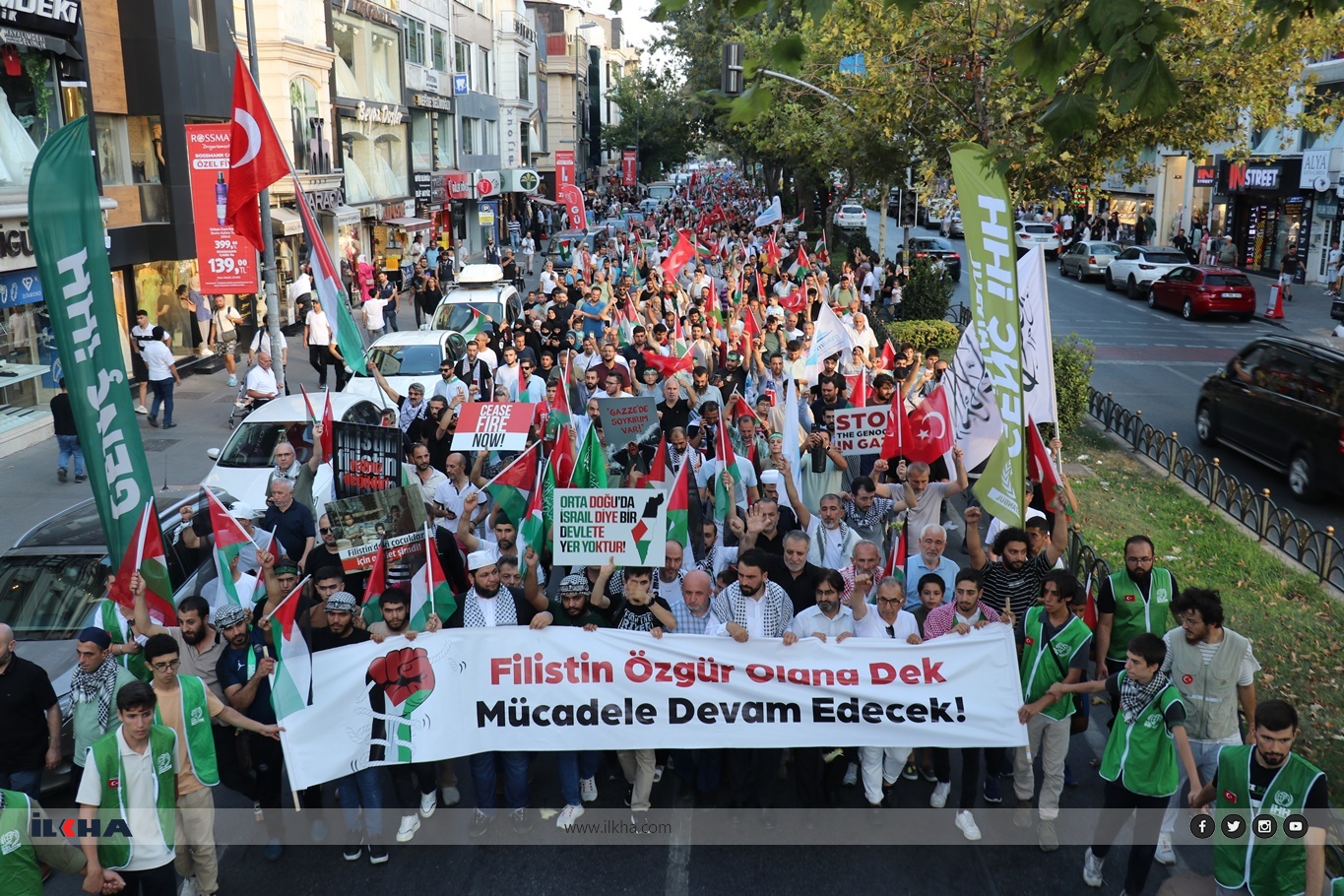
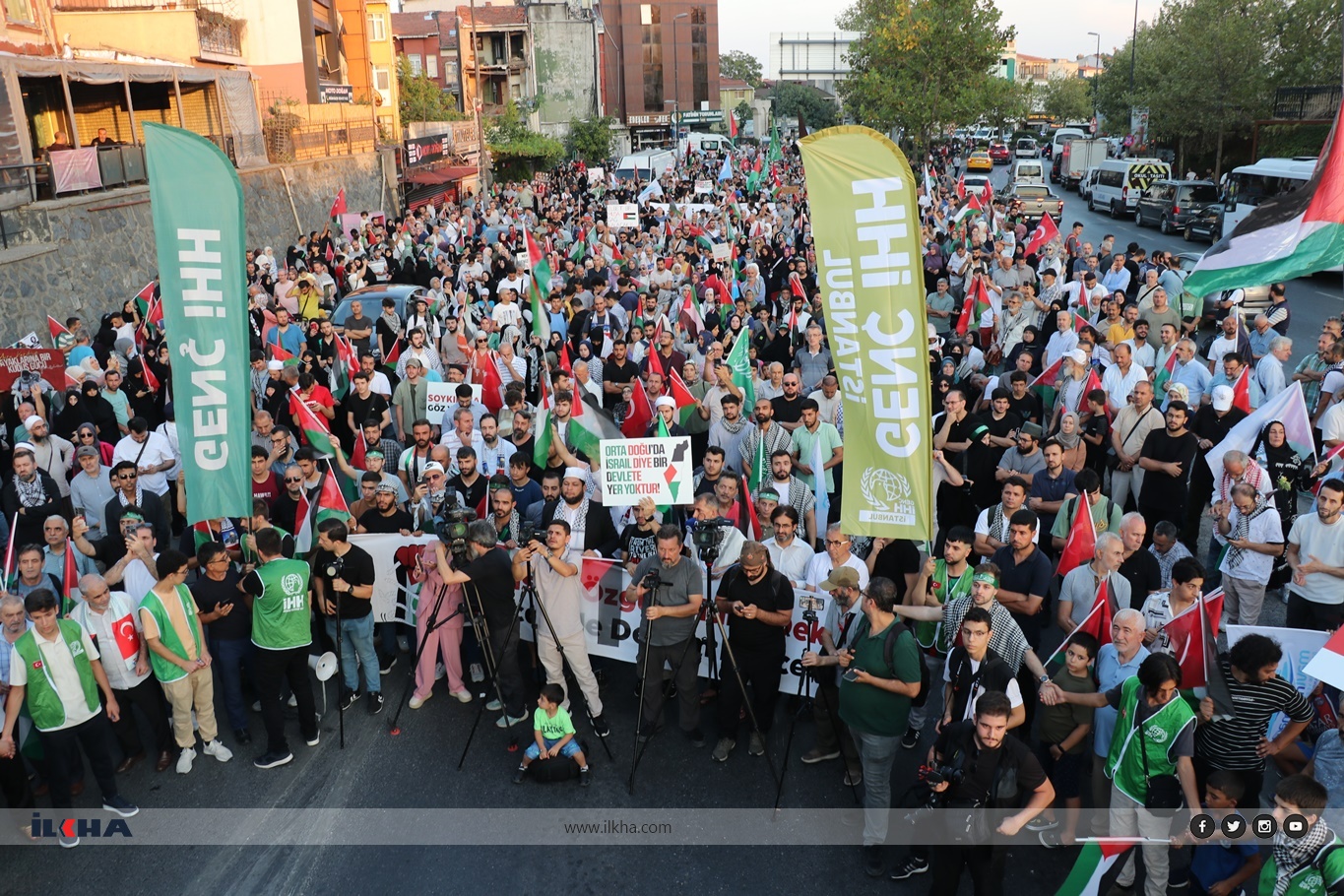
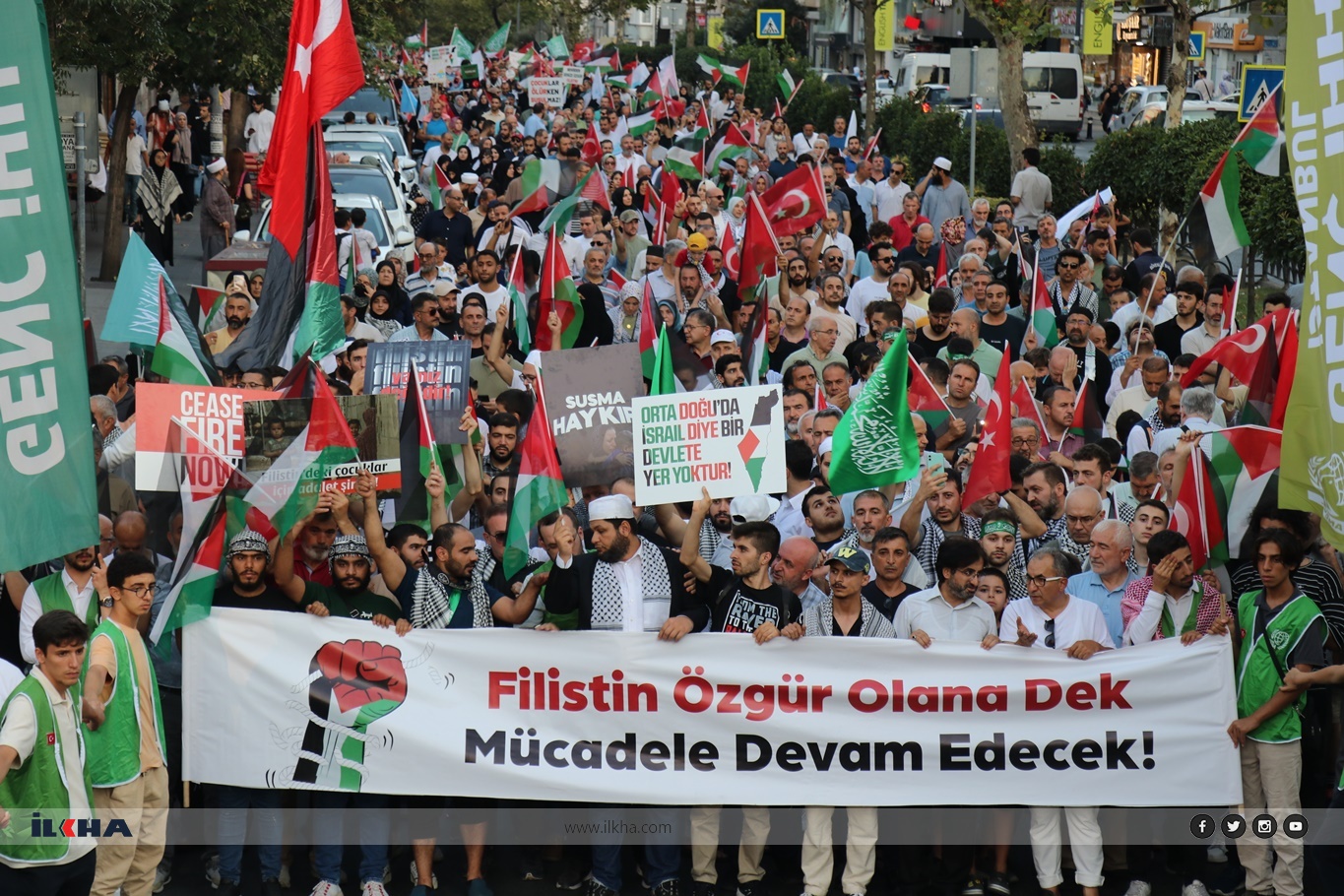
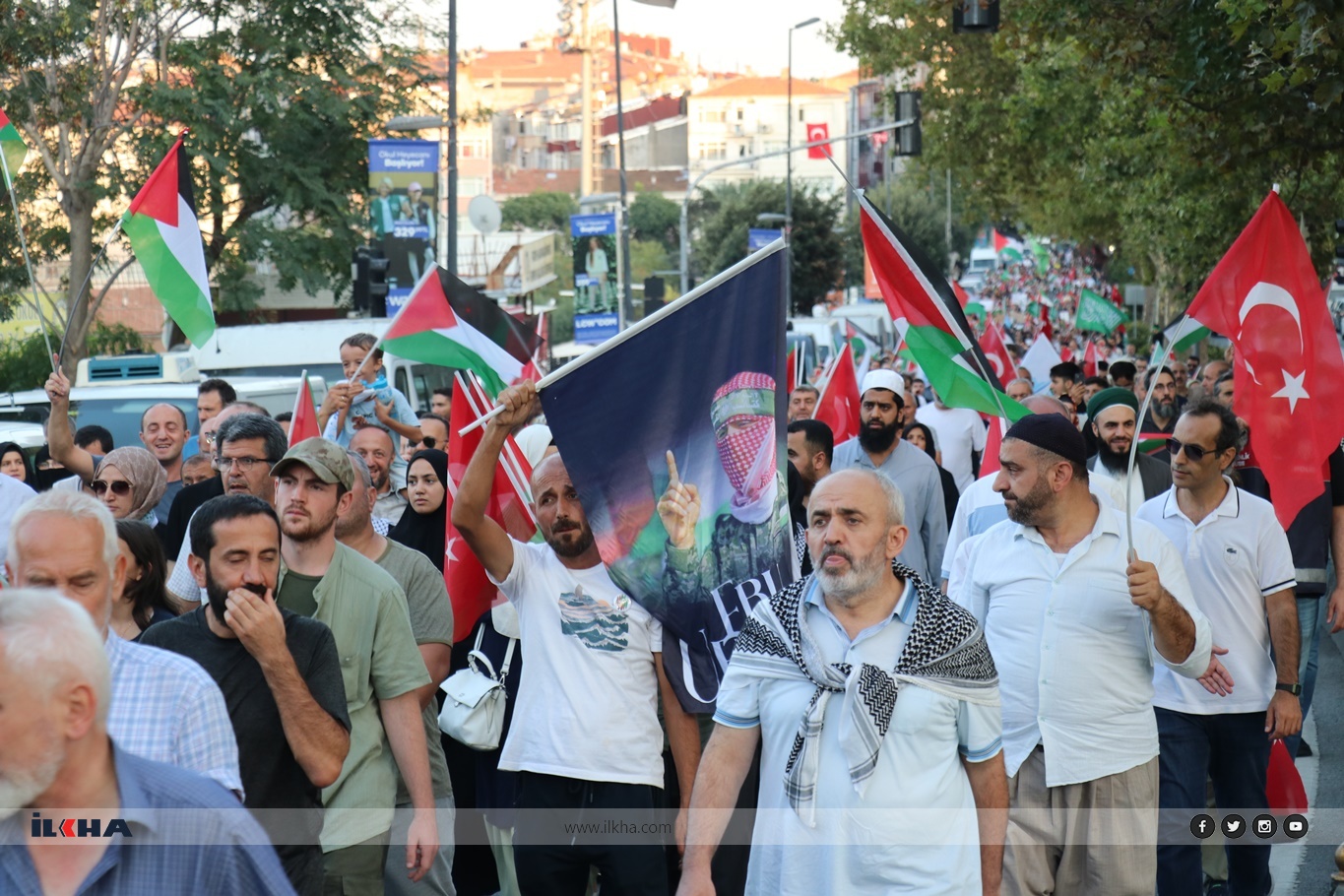
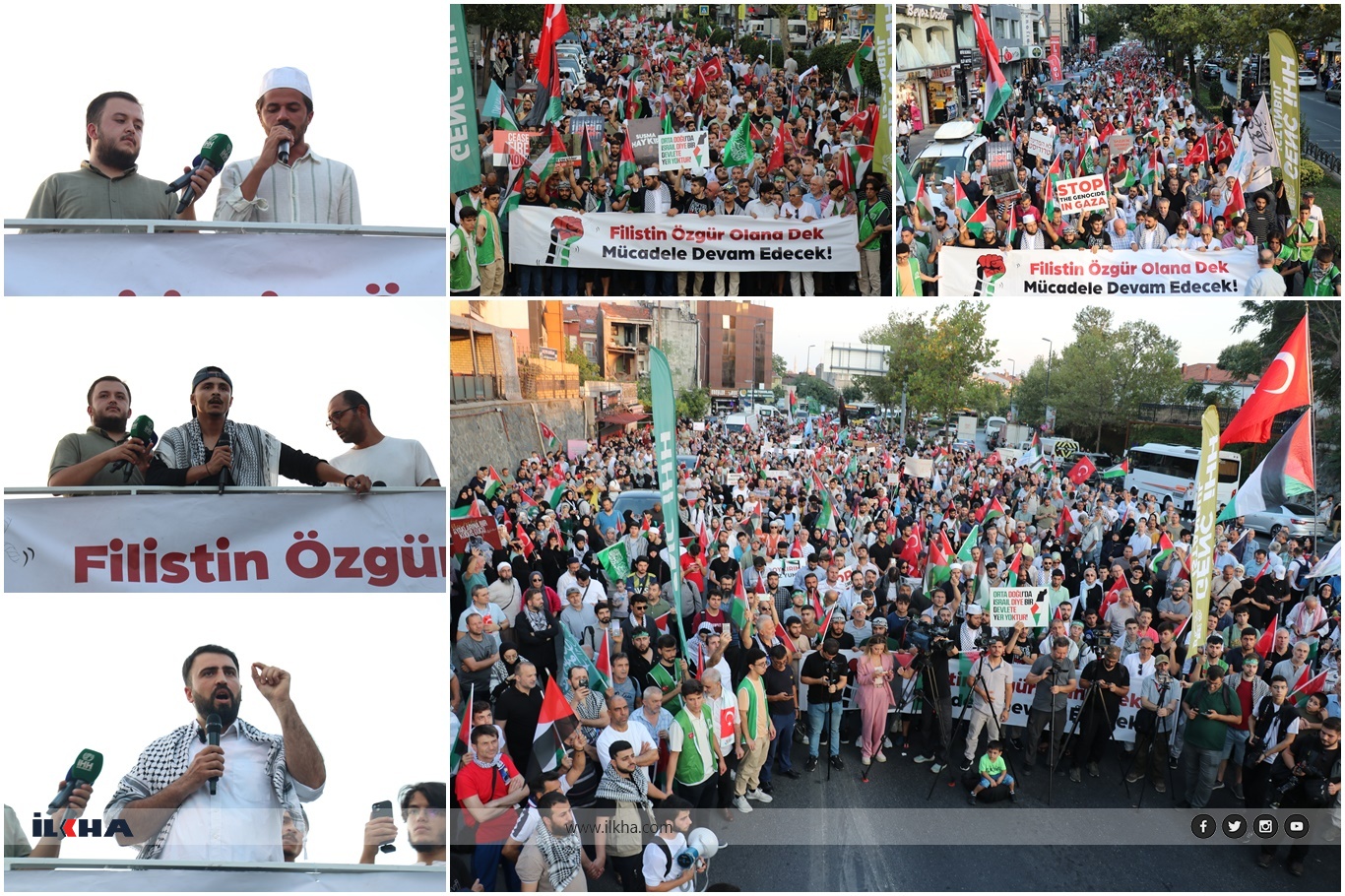
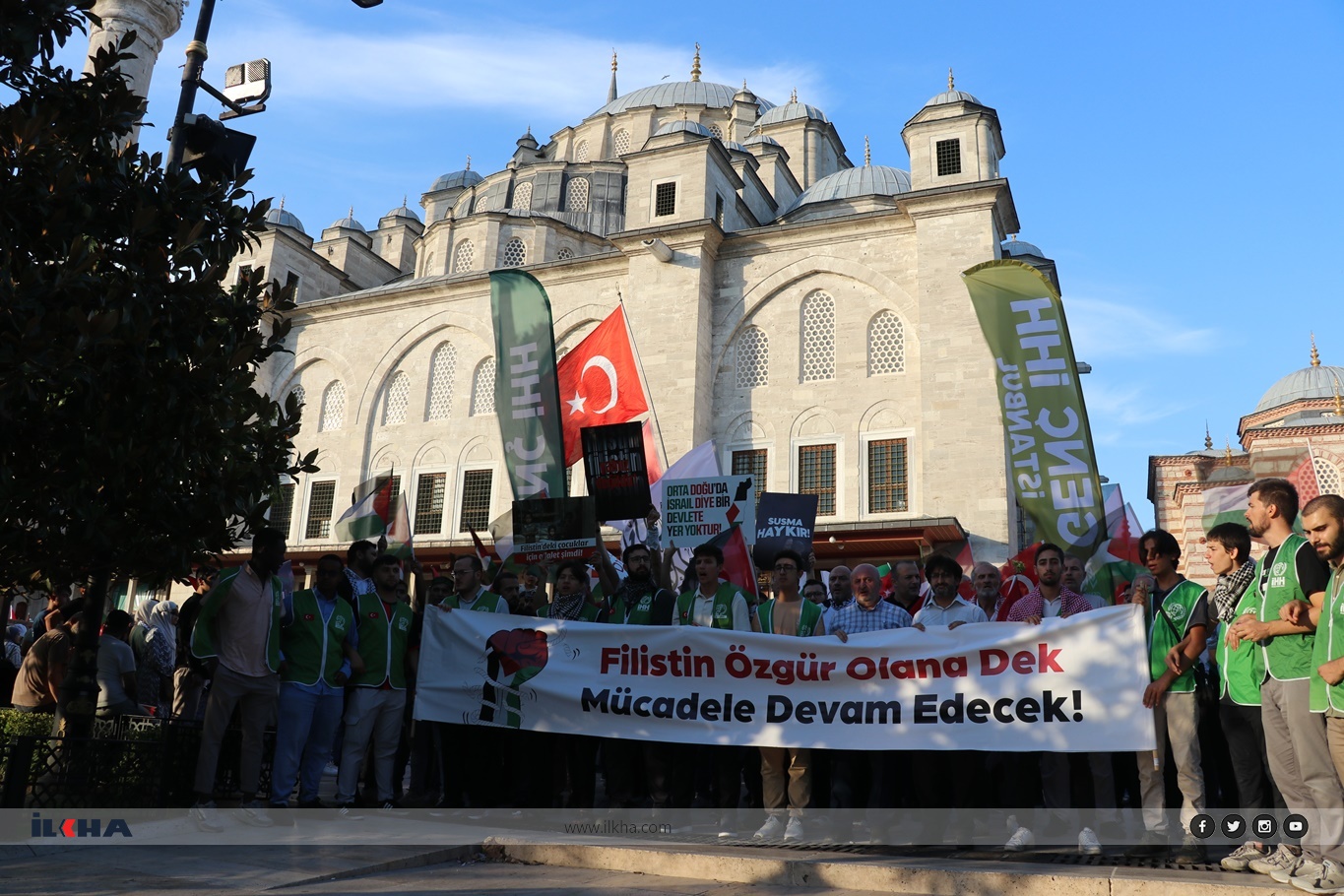
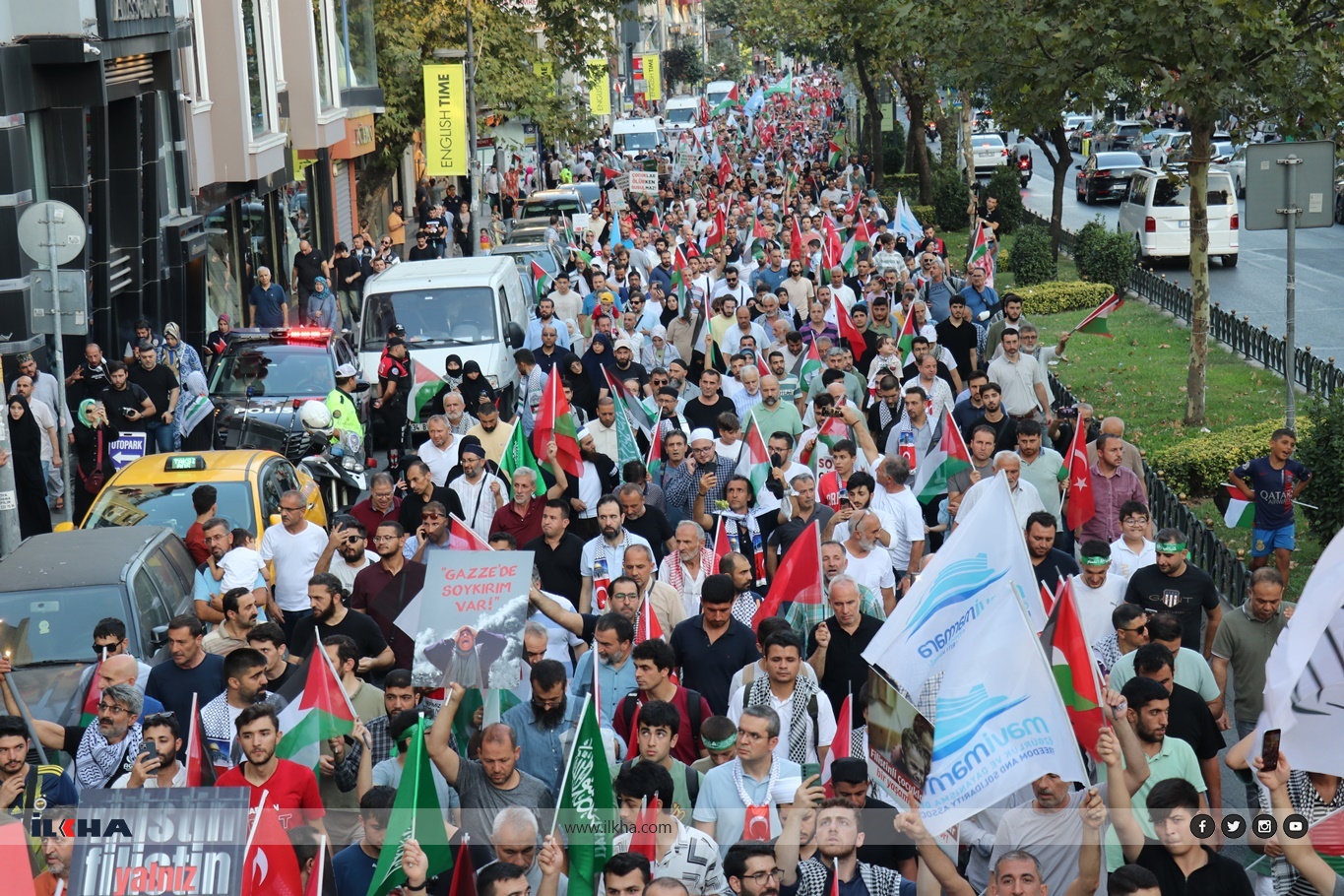
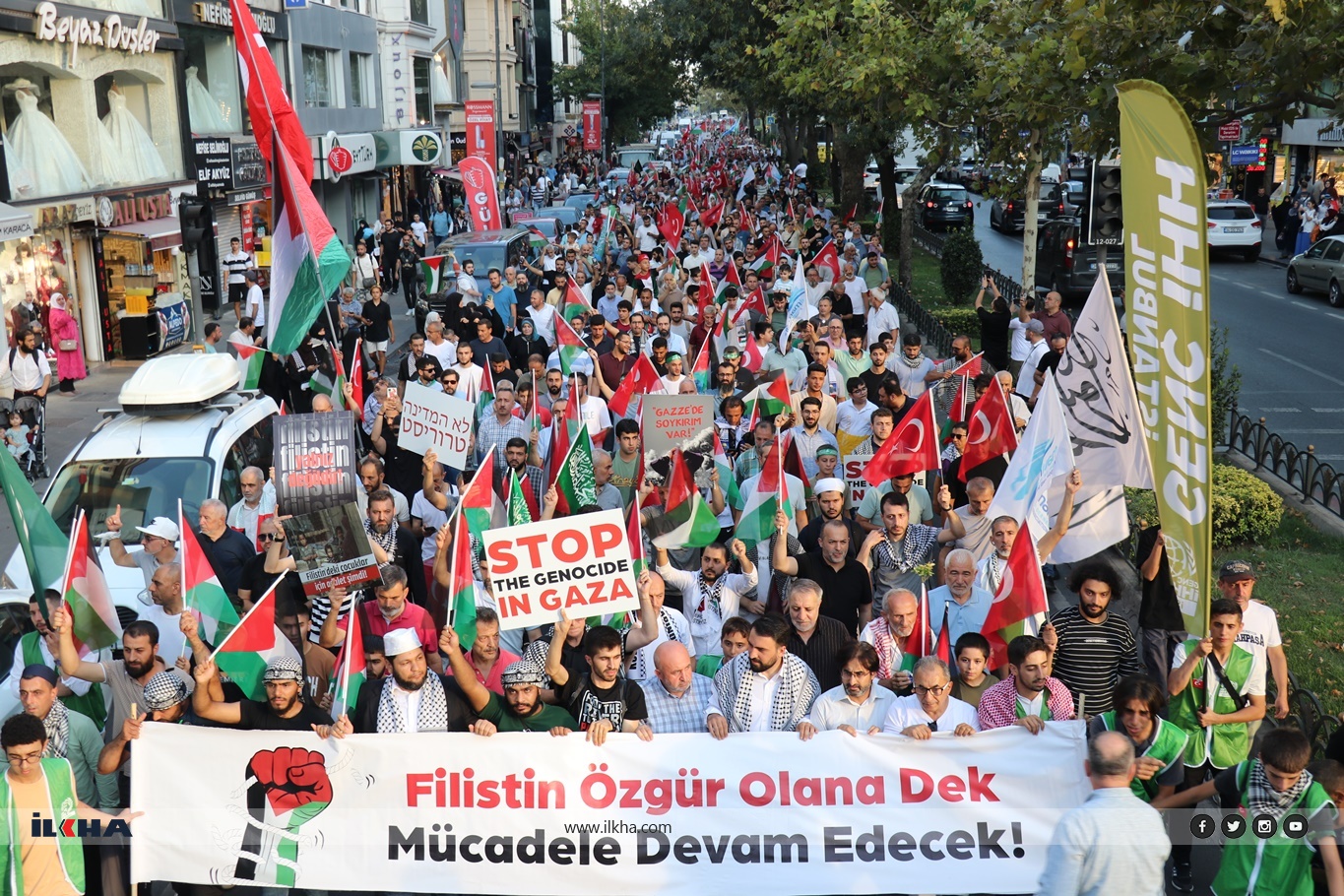
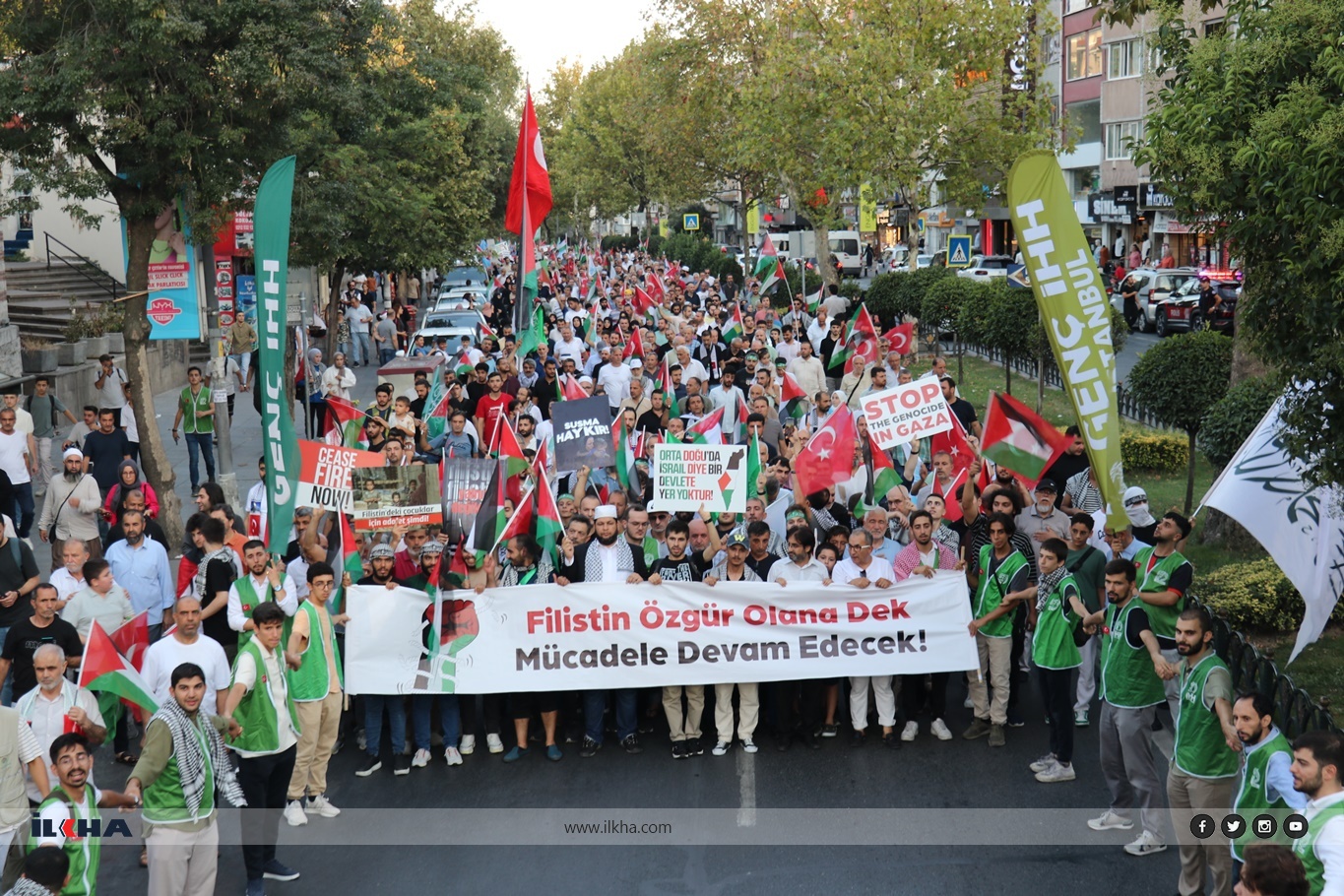

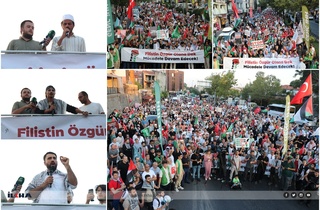

 Dünya
Dünya
 Dünya
Dünya
 Ekonomi
Ekonomi
 Dünya
Dünya
 Dünya
Dünya
 Güncel
Güncel
 Güncel
Güncel
 Güncel
Güncel
 Güncel
Güncel
 Dünya
Dünya





